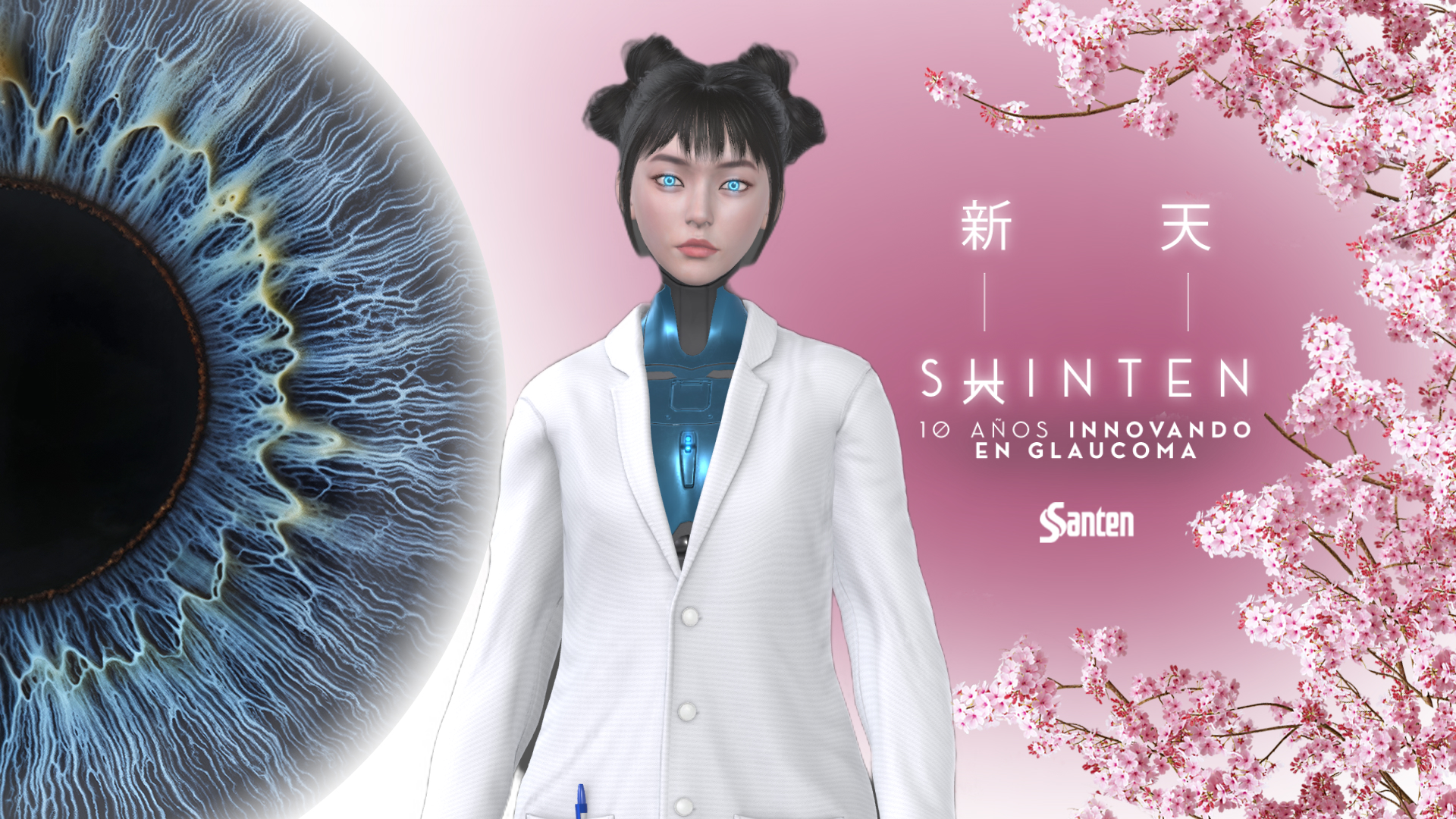Impact of Artificial Intelligence on Hospitals
The Artificial Intelligence is revolutionizing the healthcare sector, driving more efficient, automated, and humane hospitals. In this change, Imascono Health Leading the digital transformation of healthcare, developing solutions that combine technological innovation and creativity to improve the experience of patients and professionals.
Imagine a hospital where a AI avatar guides you and manages your appointments, or wherever you can take a virtual tour of the facilities before your visit. Projects such as Sania Sanitas, with its interactive virtual assistant, or Valdebebas Twin, the digital 3D hospital, are already making this future a reality.
In this blog, we explore how AI, robotics, telemedicine, and immersive environments are creating more connected and accessible hospitals. Technological innovation is transforming the health, not to replace humans, but to make them closer, more efficient, and brighter than ever. Keep reading and get ready to learn about the hospitals of the future!
The Artificial Intelligence revolution in the healthcare sector
The technological revolution is transforming the healthcare sector, and Artificial Intelligence is leading this change. From more efficient and automated hospitals to faster and more personalized diagnoses, AI is reshaping healthcare as we know it. In this new context, Imascono Health, the division specializing in innovation and technology for the well-being of Imascono, promotes solutions that humanize technology within the hospital environment.
Thanks to AI's ability to analyze millions of pieces of clinical data in seconds, healthcare professionals can make faster and more accurate decisions, anticipating risks and personalizing treatments in ways never before seen. In hospitals, laboratories, and research centers, Artificial Intelligence drives everything from assisted image diagnosis to predictive analysis of epidemics and the accelerated development of new drugs. In addition, virtual medical assistants and remote monitoring platforms are improving patient care and optimizing healthcare system resources.
In short, AI not only automates processes, but also humanizes medicine, freeing up time for what matters most: caring for people with more efficient, preventive, and personalized care.
You may be interested in → Main benefits and uses of artificial intelligence in health care
New technologies in hospitals
New technologies are revolutionizing hospitals, improving operational efficiency and the patient experience. Robotics, telemedicine, AI, and virtual avatars These are just some of the innovations that are making a difference in healthcare.
Next, we will review some of the most relevant technologies for the hospital sector.
Telemedicine and AI
Telemedicine, powered by AI, enables remote medical consultations, facilitating rapid diagnoses and personalized follow-ups. This model improves access to healthcare and optimizes hospital capacity, offering efficient, large-scale care.
Robotics and automation in hospitals
Robotics and automation optimize processes in hospitals., From AI-assisted robot-assisted surgeries to inventory management and repetitive tasks. This improves accuracy, reduces risks, and allows staff to focus on what really matters: direct patient care.
Virtual avatars for interacting with patients
AI-powered virtual avatars facilitate interaction with patients, offering support, medical information, and scheduling appointments. Imascono has developed V.E.G.A. avatars that provide personalized and accessible care in an innovative way. In the pharmaceutical field, the use case of Shin, the avatar of Sanfer to celebrate the ophthalmology event.
Shin acted as host of the event, interacting with both speakers and attendees, compiling all the medical literature shared during the day to address specific questions from the audience.
Would you like to learn more about the use of AI in the pharmaceutical industryVisit our article Automation in the pharmaceutical industry through technology.
Main applications of Artificial Intelligence in hospitals
Artificial Intelligence is transforming how hospitals operate, improving the quality of care, optimizing resources, and humanizing the patient experience. These are some of the most relevant applications of AI in hospitals:
Personalized patient support
AI virtual assistants have become a key tool for continuous patient support. They are able to resolve basic medical questions and identify when a professional needs to be brought into the conversation. They can also remind patients to take their medication, explain procedures, and keep track of Comprehensive and personalized monitoring of each case, adapting to the patient's medical history, emotional state, and individual needs. This support reduces uncertainty, improves treatment adherence, and frees up time for healthcare professionals.
Onboarding and information within the hospital
AI also facilitates onboarding in hospitals, acting as an intelligent assistant that guides patients from the moment they arrive at the hospital. As Sania, These avatars can manage appointments, indicate which floor or area each specialty is located on, provide information on waiting times, and display complementary services such as cafeterias, chapels, admissions, or emergency rooms. This improves orientation within the center and reduces information overload at reception desks and for healthcare staff.
Assistants for healthcare professionals
Another one of the applications that it has Artificial Intelligence It is direct support for doctors and nurses. Facilitating diagnosis when analyzing medical records or as support in data-based decision-making. AI tools can also be set up to automatically generate reports, allowing medical professionals to focus on caring for patients rather than writing reports. In addition, AI can also be trained to flag predictive alerts about complications or patient deterioration, helping the healthcare team provide the best possible care.
Operational optimization of the hospital
Beyond direct patient care, The use of AI in hospitals allows for the optimization of internal hospital management.. From predicting peaks in emergency room demand by analyzing data to automating patient flow in different areas of the hospital. Including energy control and predictive maintenance of facilities. The result? More efficient, sustainable hospitals that are prepared to respond to change.
Diagnosis and preventive medicine
We are already witnessing research and pilot programs that show how AI is already a key ally in areas such as radiology, pathological anatomy, and dermatology, where analyzes medical images with great precision, regardless of image quality or analysis difficulty. It also allows outbreaks, cardiac risks, or relapses to be anticipated through predictive models, promoting medicine that is more preventive than reactive.
Support for hospitalized children
Pediatric hospitalization can be a difficult process, which is why more and more hospitals are turning to technology to help their youngest patients. In particular, Artificial Intelligence combined with the trend of virtual avatars allows you to create digital pets or AI-powered animated characters. They accompany the children during their stay, explain treatments in an entertaining way, suggest educational games, and provide emotional support. This combination of gamification, storytelling, and technology makes the hospital environment a friendlier and less intimidating place..
In this regard, we highlight the project developed by the A.P.E. Foundation. and the Aragon Government health system for the diagnosis of ADHD cases among children and adolescents. In ApeTest clinical questionnaires are moving into the world of video games to create a pleasant and welcoming space for teenagers, where they can be more themselves in their responses.
Success story of AI implementation in hospitals: Meet Sania
The integration of Artificial Intelligence in the hospital setting is now a reality. Below, we present one of the success stories developed by Imascono Health, which show how technology can improve healthcare and the patient experience. In this case, for Sanitas.
SANIA and the patient's virtual journey
Sanitas, a leading company in the private healthcare sector, sought to improve the patient experience in its medical centers while optimizing its internal processes. The company already had an artificial intelligence tool in chatbot format for inquiries about its hospital services. With this project, Sania comes to life through her AI avatar version: adapted in terms of physical appearance, personality, and, of course, knowledge and sources of information.
Sania, in her humanoid form, welcomes patients and visitors to the Blua Sanitas Valdebebas Hospital in the reception area via an interactive kiosk. This system allows users to interact via voice or touchscreen to obtain information, manage appointments, and resolve queries. It also offers multilingual support and an inclusive design, ensuring accessible interaction for all types of patients. Sania seeks to reduce waiting times, ease the burden on healthcare staff, and provide a warmer and more efficient experience within the hospital.
What will hospitals of the future be like?
The hospitals of the future will be smarter, more connected, and more human spaces thanks to the integration of technologies such as Artificial Intelligence, robotics, telemedicine, and Extended Reality. These tools will enable the creation of more sustainable, accessible, and personalized healthcare environments, capable of providing real-time information and optimizing medical processes.
The Virtual Reality and the Augmented Reality are already revolutionizing training and clinical work: from recreating operations in safe environments without risk to real patients, to studying 3D anatomical models and surgical assistance with superimposed data during the procedure. Experiences such as simulations developed by Boehringer Ingelheim demonstrate how these technologies facilitate learning, improve accuracy, and reduce the use of physical materials.
At the same time, These immersive solutions transform the patient experience., offering guidance tools, virtual therapies, and personalized environments that reduce uncertainty, improve the hospital stay—especially for children—and strengthen the relationship between healthcare institutions and users.
The combination of immersive reality, AI, and telecare drives new models of doctor-patient interaction, from AI-assisted consultations to interactive instructions to ensure the correct use of treatments and medications. In this new digital ecosystem, technology and medicine are advancing more closely than ever before, paving the way for more efficient, humane hospitals that are prepared for the challenges of the future.
Would you like to learn more about how Artificial Intelligence and innovation are revolutionizing hospitals? From Imascono Health We would be delighted to share our solutions and all our expertise in the use of technology in the healthcare sector with you.




